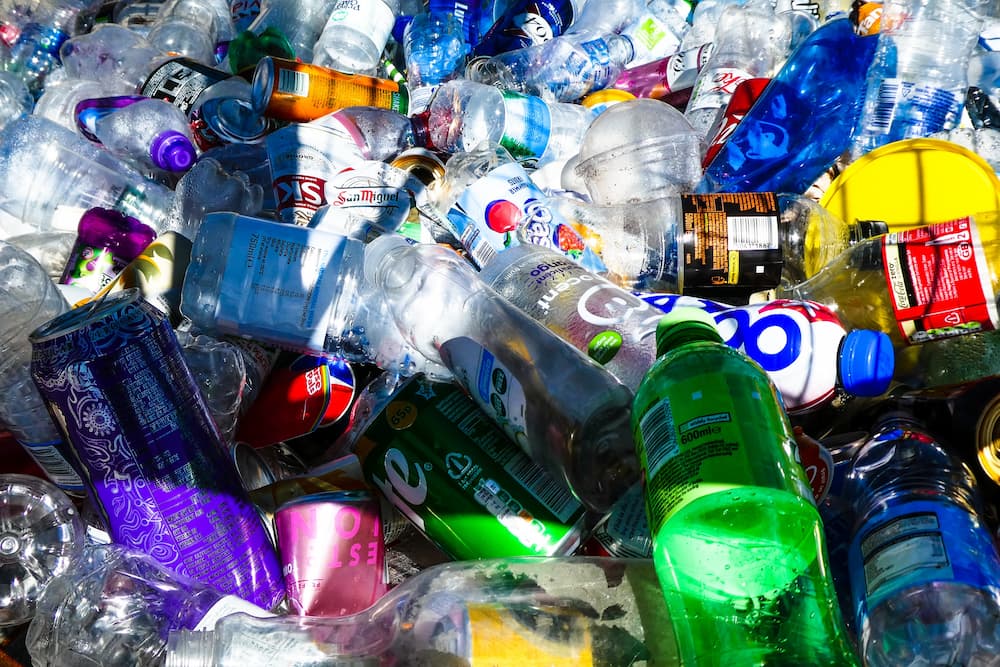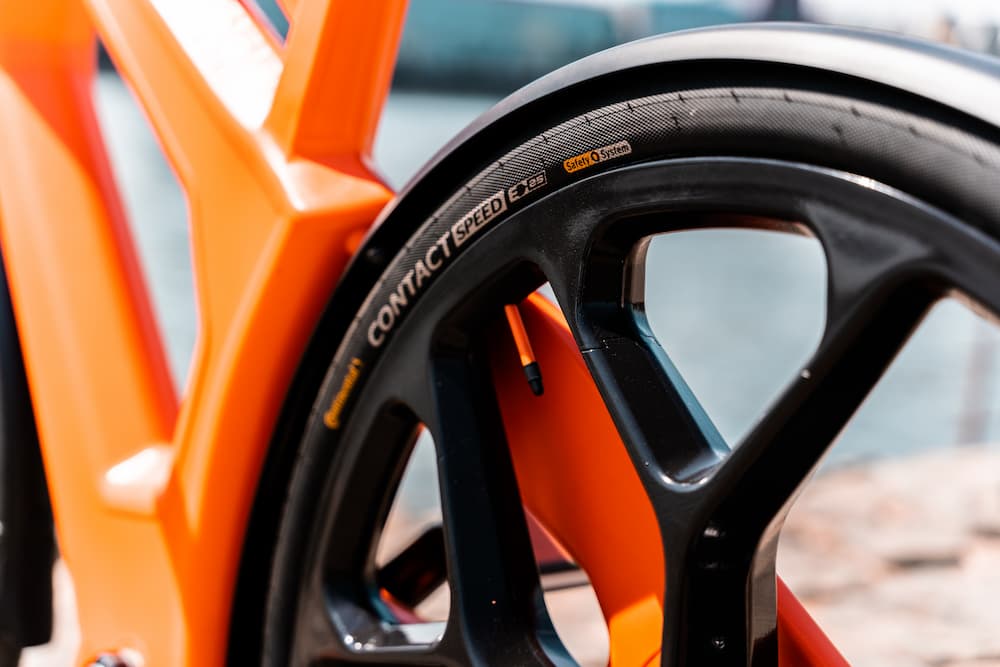How to reduce single use plastic? Make a bike!
It is true, you are reading that correctly. One of the most important questions asked of us over the last few years is “how to reduce single use plastic?”. So, with this in mind, we are releasing a bike made from recycled plastic! Using our expertise in plastic engineering, we have been working together with approved partners and have designed a bike which will be assembled and supplied by these partners. This ensured we were using our strengths, our knowledge and tools in areas which we are experienced in, such as the engineering design in lubrication-free plastics. This has allowed us to work closely with bicycle manufacturers to integrate the bike into the market
How to reduce single use plastic and why is this important?

The igus:bike was conceived to address a serious problem: the world is drowning in plastic waste. This is not some sort of revelation. We are all aware of this issue. Plastic in landfill sites is growing fast, faster than we can dispose of it. Some of this plastic ends up in the ocean and can enter the food chain, becoming a danger to marine, animal and human life. Companies must shift away from the traditional linear economic model and migrate to a fully circular economy.
igus® has invested in ideas for recycling plastics for many years and, as I have mentioned before, being a plastics company comes with its own set of negative connotations. So, by being able to create something that is unique and sustainable is an amazing achievement for us.
The bike is a robust, durable urban bike made entirely of plastic, from the frame to its bearings and the toothed belt. A special feature of the new bike is that the recycled version will be primarily made of reused “single use” plastics, which can go towards helping reduce waste.
We have taken rubbish found in dumps from around the world and turned it into a valuable resource.
Why a bike?

The CEO of igus®, Frank Blase, first had the idea of creating a bicycle, now known as the “igus:bike“, on a beach while on holiday. In conversations with a bike rental company on the beach, he established they had major problems with beach bikes: continuous exposure to sand, wind and salt water meant some parts only lasted about three months before they needed replacing. Maintenance is a time-consuming and expensive part of the bike rental business.
Thanks to the use of maintenance and lubrication-free plastics, owners of the new bike can leave the single-speed bike outdoors in all weathers and clean it in seconds with a garden hose. As all components are made of plastic, no part of the bike rusts, not even the gears.
How to reduce single use plastic by recycling them into pedals!
Lightweight, lubrication-free, high-performance plastics are used in all parts of the bicycle, from two-component ball bearings in the wheel bearings to plain bearings in the seat post, brake levers and pedals.
All these components have integrated solid lubricants and ensure low-friction dry operation – without a single drop of lubricating oil. This ensures that sand, dust and dirt cannot accumulate and clog-up moving parts.
Platform for bike
The igus:bike platform offers bicycle manufacturers all over the world the opportunity to jointly improve this technology. The online platform continuously shows the status and progress of all components and explicitly invites market players to participate. The platform is intended to become a contact point for manufacturers who want to build a plastic bicycle and for all manufacturers of suitable components, such as plastic frames, wheels, drives and pinions. The platform is already hosting initial corporate collaborations, for example, Helix.eco for recycled plastics. Many more will follow.
Another partner is Dutch start-up MTRL that has successfully put 400 bicycles with plastic frames and wheels onto the Netherlands’ roads.
The bicycle start-up will begin production with a children’s model and an adult bicycle for cities by the end of this year. Other versions, such as an e-bike, have also been planned. In the future, the all-plastic bicycle will be available both in a new plastic variant and in one made entirely of recycled material. The first prototypes, successfully produced and tested, were made of plastic reclaimed from old fishing nets.
From ocean plastics to motion plastics – the igus:bike concept has what it takes to become a high-tech ecological product and answers the age-old question of “how to reduce single use plastics?”- make bikes!
For more blogs on igus® and sustainability issues visit here



